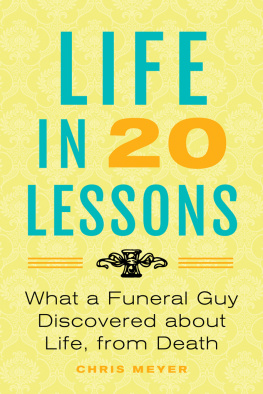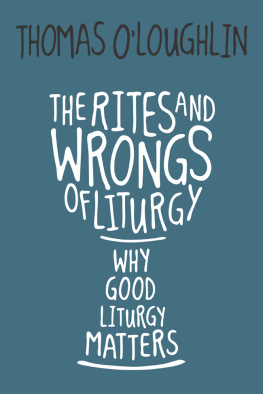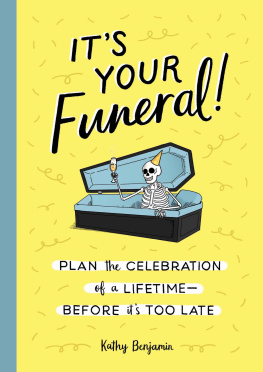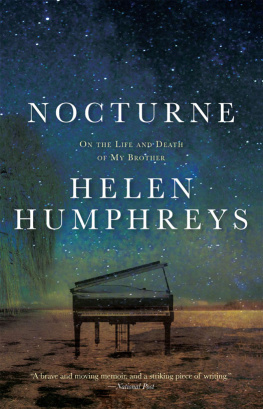
Hindsight is twenty-twenty
Modern English proverb
February
Undecided
Youre not doing that right, she told him, as she watched him from the bed.
He stopped and turned to look at her. Or maybe he hadnt turned to look at her. Maybe he found her reflection in the mirror, foregrounded by the razor he held in his hand. Thats how a writer would frame it.
What are you talking about?
Youre not meant to shave like that. Youre meant to do it smoothly.
He stared at her, incredulous. He knew she could be bossy, but this was too much.
What do you know about shaving your face?
She had shaved her legs and armpits, of course. And she must have seen it on TV, in the commercials. A handsome man draws a razor in a long, smooth pass through a perfect mask of shaving foam, exposing a line of tan skin. No scraping motions, no nervous sawing away at the same patch of face which was how he shaved: back and forth, up and down, the way most people brush their teeth.
Try it, she said.
She would have bounced in the bed as she said it; her enthusiasm always took physical form. She would have raised her voice as they bickered, still delighted with each other. She would have laughed at him. She had a brash, happy laugh.
Seriously. Try doing it more smoothly.
And in the end he did. And it worked. But it was too late for her. Her chin was already raw from the beard rash.
He remembered the bed in their guest house as narrow, but all beds feel narrow at that age, when you seldom roll far apart. So he could be wrong now, twenty-seven years later, about the width of that bed. But he did remember the nights they had spent there, and how they had felt. He remembered her telling him how to shave better. And he remembered their room in that Donegal guest house, two faces in a mirror, a pattern of light, the placement of the bed with a window to the right of it. But he couldnt remember what town it was in. He had an idea it was Moville. Though it might have been Carndonagh.
They drove up from Dublin in his first car, the one hed bought at a police auction, and later that day they crossed Inishowen to Lough Swilly. By the shore in Buncrana, in the cold rain from the west, an old fisherman delighted her with stories of his life at sea she loved talking to strangers, which was something he dreaded but twenty-seven years later, those stories were gone.
In Derry, on the way home, she saw candy-striped shirts outside a pub near the Bogside. Derry City were playing Shelbourne, from Dublin, in a League of Ireland soccer match. She decided she wanted to go. When she wanted to do something, she usually did it. She was always curious, always looking for something new. He was reluctant, but they went to the game in the Brandywell anyway, and it was fun. It usually was, with her.
And twenty-seven years later, when it became suddenly urgent for him to gather all the fragments that he had of Charlotte McDonald, to establish the timelines, he remembered this match, and realised that it was a beacon, a quasar, a point he could fix in lost space and time. To determine exactly when they had gone north for that weekend, he could look up the football records online.
Derry City played Shelbourne at home in the Brandywell on Sunday, 1 November 1992, a little over a month short of his twenty-sixth birthday.
No kick-off time was given, but he could remember the floodlights and the chill in the air. Had he really agreed to drive the four hours back to Dublin in the dark, late at night, during the Troubles, on the old bad roads, through the border at Aughnacloy, just so she could watch a semi-professional football match? She wasnt even that big a fan of football. You had to hand it to Charlotte: what she wanted, she usually got.
The records said that the match finished scoreless, though he could have sworn he remembered a goal. What did he really remember about his time with Charlotte McDonald?
The first of November 1992. That at least was a start. He put that into the timeline. He had come to remember their thing, more or less fondly, as a summer fling, but now that he checked it was winter and fall.
Charlotte had graduated two years before with a degree in law that she no longer wanted. She had gone to live in France with a boyfriend, and she had come back to Dublin without him. Having just turned twenty-four, she moved back in with her parents and younger siblings. She was weightless then, undecided, no job and no plans. She could have become anything, and thats how he would always remember her. As it turned out, she would start her own business, in a creative industry, and she would do very well.
His phone pinged, on the table, to the left of his laptop, twenty-seven years later. Without picking up the phone, he glanced at its screen and then closed his eyes. Charlotte,
he said. He had a sense of something coming gently loose inside him, of a subroutine that had been running for decades, unnoticed in the background, revealing its existence by the act of shutting down.
Later that night, he called Charlottes cell phone. He assumed it would have been switched off by then, that his call would go to voicemail, and that hed hear her bored voice, one last time, telling him to leave a message and that she would get back to him. But instead it started ringing, so he ended the call before somebody answered. Hed used this trick before, twenty years ago, calling his brothers Nokia. But back then hed known for sure that no one would answer: his brother, unlike Charlotte, had lived and died alone.
It occurred to him now, at ten thirty-five p.m. on the night of Charlottes death, that someone, at some point, and most likely her husband, would pick up Charlottes phone and see the message on the screen: Missed call, and the time it was made, and most likely his name: he and Charlotte had each others numbers, though they never used them anymore. He hoped that her husband, whom he liked, would understand. And when her husband later replied to his email of condolence, a couple of days later, he made no mention of any posthumous phone calls. Thanks for getting in touch, he said.
The fact was projected on to his ceiling that first night, and for many nights thereafter: he should have known that Charlotte was dying. It turned out she had been very sick for several months. He should have been in contact with her. He should have said what? Goodbye? No. He should have said hello. Even just an email or a text. Get well. Thinking of you. That would have been enough. It was too late now. Now he was trapped in the dark at night, trying to save what he could of her. And he despised himself for this, because he knew he had no right to have strong feelings about her, just because she was suddenly dead. He had checked that already: it had been twenty
seven years. They hadnt even been in love back then. He had acquired his own people since, a real life, and a good one, and had suffered real losses of his own. He told himself this from the start: this wasnt just about Charlotte. It was about him suddenly being faced with facts hed been ignoring that he was getting old, that he wasnt what he used to be, that his imagination, always overactive, had at some point reversed its direction, switching production from dreams to regrets. Anyone could see the gears turning, the facile clockwork. It was selfish and dishonest. And worse, it was dull.
Charlotte herself had been no sentimentalist. If she could see him like this, shed be shaking her head in sorrow while trying hard not to laugh. And she would have blurted out what he understood to be true but would not want to hear said aloud: that it was himself he was mourning the most, not her. Plus, he knew perfectly well that this was one-sided, that she would not have thought about him, one of several old boyfriends, from one year to the next. He didnt think she was one for regrets.
Next page







